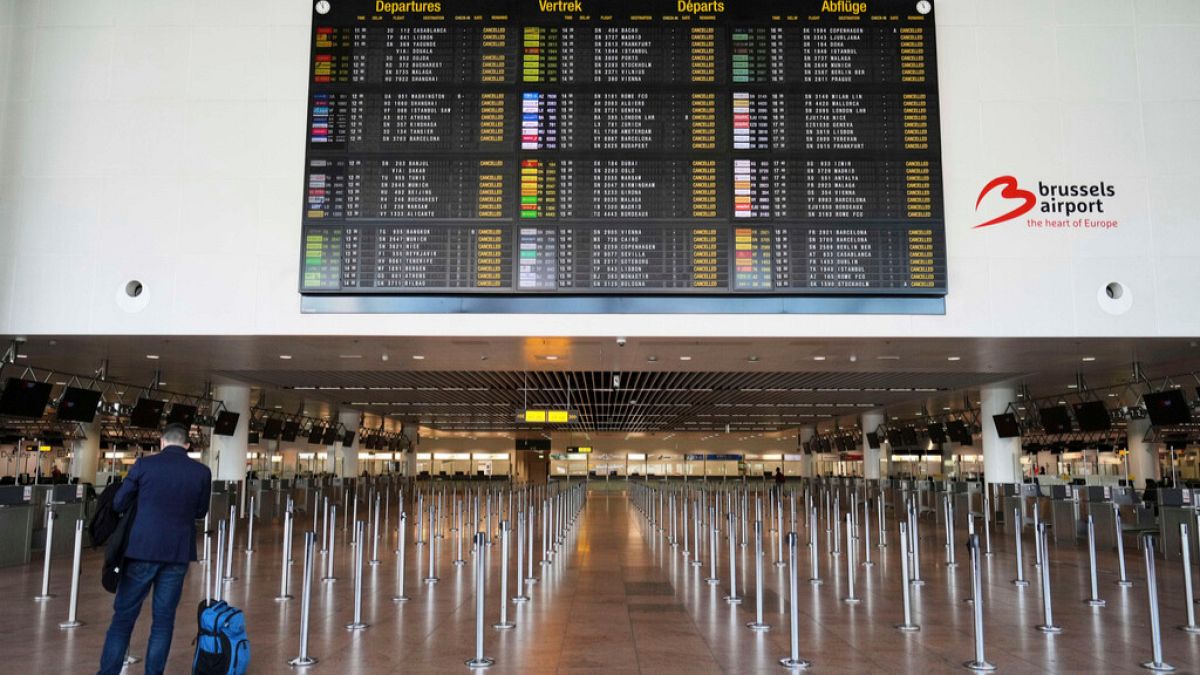Strikes are becoming increasingly more common across the country as Belgians express discontent with new coalition government.
Workers from both the public and private sector in Belgium have walked off the job for 24 hours in a national strike that has severely disrupted public services and transport and brought air traffic to a complete halt.
The Christian and Socialist trade unions organised the strike in protest against budget cuts announced by the country’s coalition government, nicknamed “Arizona” because the coalition party colours match those of the Arizona state flag, led by Flemish nationalist Bart de Wever.
The proposed changes would impact pensions, unemployment benefits, public services and the labour market.
Public transport across Belgium has been severely disrupted.
In Flanders, less than half of planned buses and trams are operating. The national railway service is operating a minimal service, as required by law, with less than half of all trains running.
Several schools are closed and certain public services are at a standstill, including postal and rubbish collecting services. The ports of Antwerp and Zeebrugge are partially disrupted.
However, disruptions to the healthcare sector and grocery shops remain minimal.
Private sector workers have also gone on strike, affecting several large companies in industry and transport.
The impact of the strike can also be felt internationally, as Brussels Airport cancelled all 244 flights and warned incoming traffic may also be impacted.
Belgium’s second largest airport, Charleroi, has cancelled all in- and outbound flights.
Flag carrier Brussels Airlines additionally cancelled all departing flights and almost all arrivals, mostly impacting flights from Germany, Italy and Spain.
Passengers whose flights were expected to be impacted were notified last week and were given the possibility to rebook their flight or request a refund.
In February, hundreds of thousands of people took to the streets of Brussels to express their discontent with the “Arizona” government and its proposed policies.
The demonstration coincided with another nationwide strike, which had similarly disrupted public transport and Belgian airspace.
“Today, it’s true that the movement is very popular because people are fed up. Nobody wants to work until 67 to earn less money,” Stefano Scibetta, Senior Delegate for the General Labour Federation of Belgium (FGTB) said.
“We’re in a sector that makes a lot of money. We made one billion in sales this year, and that’s it. One billion and our salaries are going to be frozen,” he added.
Many Belgians feel let down by the government, and strikes are increasingly common across the country.
However, some have voiced concerns that these strikes are having the biggest impact on ordinary citizens and not on the government itself.
Read the full article here
















